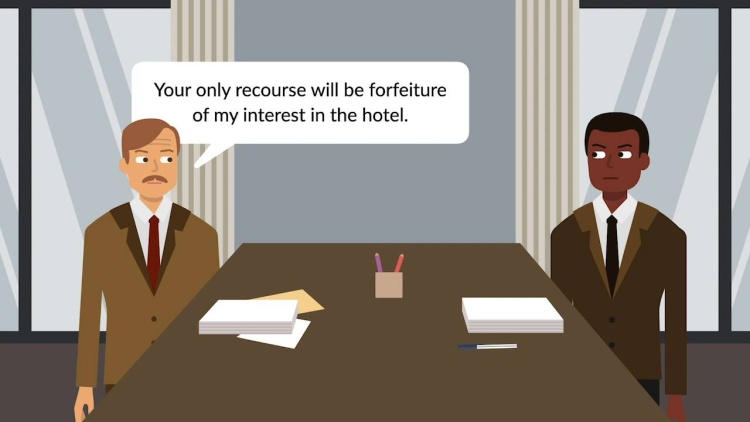Estate of Franklin v. Commissioner
United States Court of Appeals for the Ninth Circuit
544 F.2d 1045 (1976)

- Written by Robert Taylor, JD
Facts
In 1968, Charles Franklin (plaintiff) and his business partners bought a motel from Wayne and Joan Romney. The purchase price of $1,224,000 far exceeded the motel’s real value, which the partners knew or could have known at the time. There was no evident reason why the partners agreed to pay the higher price. The partners made a $75,000 down payment on the purchase. Under the complex terms of the purchase agreement, the Romneys continued operating the motel, received all motel revenue, paid all of the motel’s costs, and were legally liable for the motel’s debts. No purchase deed was to be recorded until the expiration of a 10-year nonrecourse mortgage, and the partners were not personally liable for repaying this mortgage. For 10 years, the Romneys made leaseback payments that effectively offset the value of the partners’ mortgage payments. Other than their down payment, the partners invested no money in the motel for 10 years. At the end of those 10 years, the motel’s value was still not equivalent to its 1968 purchase price. In 1979, the partners paid off the mortgage. However, because the mortgage payoff exceeded the motel’s value, each of the partners, including Franklin, was able to claim a federal tax depreciation deduction for a share of the resulting loss. The commissioner of internal revenue (commissioner) (defendant) disallowed Franklin’s deduction. Franklin petitioned the tax court for a redetermination, and the tax court ruled for the commissioner. Franklin appealed to the United States Court of Appeals for the Ninth Circuit.
Rule of Law
Issue
Holding and Reasoning (Sneed, J.)
What to do next…
Here's why 907,000 law students have relied on our case briefs:
- Written by law professors and practitioners, not other law students. 47,100 briefs, keyed to 996 casebooks. Top-notch customer support.
- The right amount of information, includes the facts, issues, rule of law, holding and reasoning, and any concurrences and dissents.
- Access in your classes, works on your mobile and tablet. Massive library of related video lessons and high quality multiple-choice questions.
- Easy to use, uniform format for every case brief. Written in plain English, not in legalese. Our briefs summarize and simplify; they don’t just repeat the court’s language.





